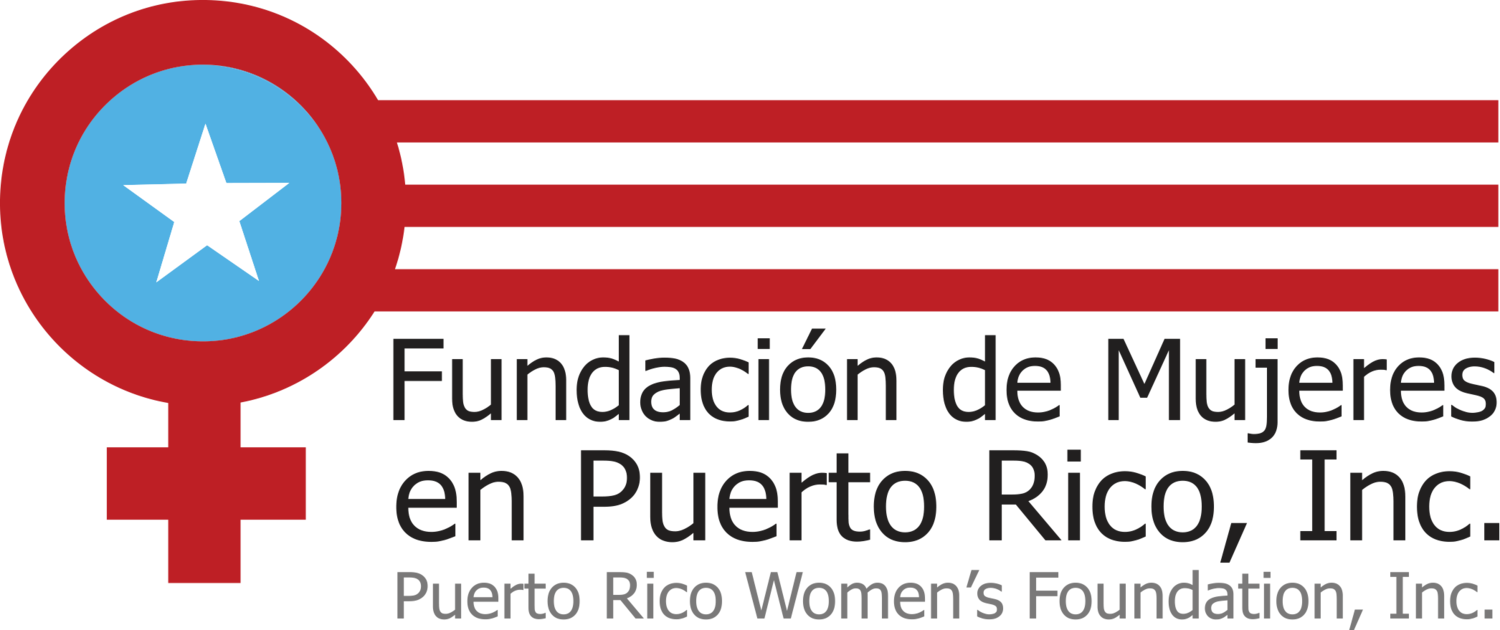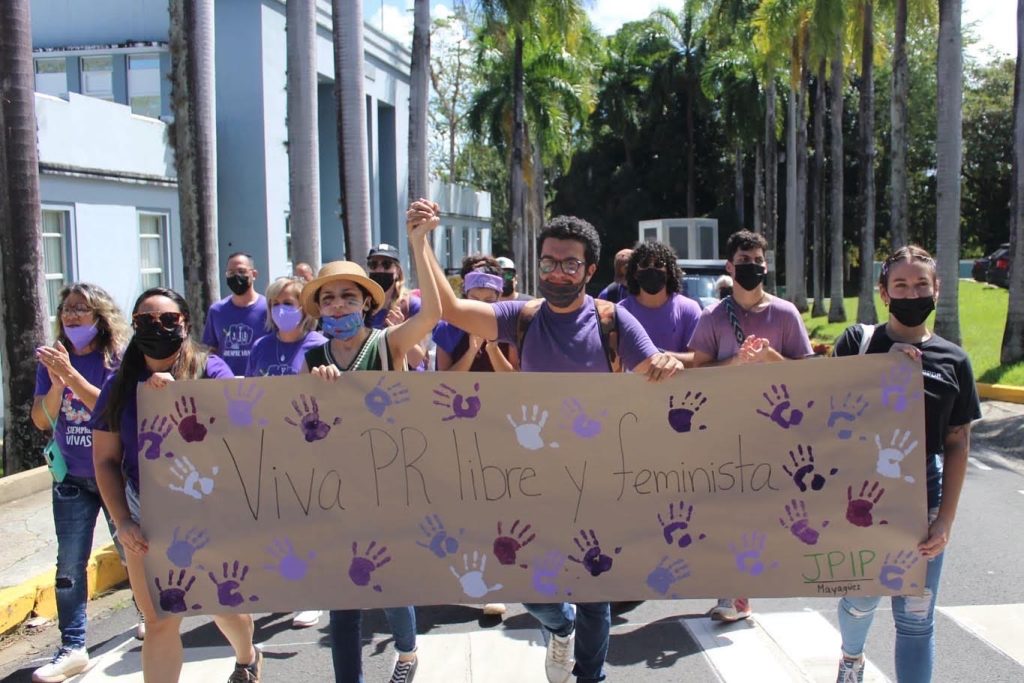For SIEMPREVIVAS RUM, the “acompañamiento” model and its community approach is essential for empowering gender violence survivors
Luisa Seijo Maldonado recalls how people began to know her and the group of volunteers who accompanied victims of gender violence to the Mayaguez Municipal Court for legal processes against their aggressors—they were called “the women with purple ribbons.”
The collective began by creating a group of five students and professionals from the University of Puerto Rico Mayagüez Campus (RUM) who were eager to implement a new acompañamiento model of feminist social intervention for supporting women victims of violence.
This is how, in September 1997, the initiative named Research and Services for Women Survivors of Domestic Violence and Sexual Assault Project was born in the western region of Puerto Rico.
In 2002, the group began a campaign to have the University take on the project and provide a formal physical space. In 2003, the college administration offered “La Casita,” a property located in the former faculty residences that became the project’s headquarters. Luisa recalls that one of the facilitators questioned: “how in the world they were going to answer the phone with such a long project name.” So the name SIEMPREVIVAS, the Spanish acronym for Research Services Educating Women to Choose a Truly Self-sufficient Life, was coined.
“We’ve been working with interested students who have skills, experience, and, above all, a feminist vision,” says Seijo Maldonado, director of the initiative for the past 25 years.

The social worker identified the need to break the cycles of sexist violence experienced by survivors as well as their children. Support groups were created with the help of volunteers to promote collective healing through empowerment from a feminist perspective and to facilitate self-sufficiency. Beyond wearing purple ribbons, the vision has been to accompany victims of various forms of gender violence throughout this process.
In Puerto Rico, the Gender Equity Observatory, an NGO documenting sexist violence, recorded 79 femicides in 2022. Fifteen of these killings were classified as intimate femicides, perpetrated by partners or ex-partners in a domestic violence situation. Moreover, 84% of reports of violations of Domestic Violence Law 54 involved women victims according to data from the first four months of 2022.
By acknowledging this fact in participant experiences, Seijo Maldonado hopes that SIEMPREVIVAS can help women and feminized persons reach self-sufficiency that is far from patriarchal conceptions, and that they achieve it as part of a collective process.
The work entails an ongoing learning process that involves university students from different colleges and fields, such as psychology and social work, who normally lead the group interventions under professional supervision.
“The students who serve as facilitators as part of their course practice, also heal. We are talking about a horizontal project, where each facilitator and participant is accompanied from a perspective of equity, not a hierarchical practice. In the end, all of us as women have had some kind of experience with violence and discrimination, and we all need to heal at some level. This is the space for healing, learning, and offering support,” says Seijo Maldonado.
“We tell them that this is a space for expressing joy, sadness, and anger in a protected environment; that this is our space for expressing the things that cause us pain and anguish or bring us happiness, the things that fill us with rage or that we believe are unfair,” adds Seijo Maldonado, who is also a professor at the RUM Department of Social Sciences.
Additionally, the organization focuses on areas of interpersonal empowerment, with workshops in managing crises and emotions as well as responsible parenting. Acompañamiento support is provided to women in all their diversity as well as the LGBTQ+ community,” Seijo Maldonado underlines.
For this support to be successful, a re-socialization is needed among participants and facilitators of support groups as well as the Culture of Peace for Children and Youth Solidarity led by Dr. Ana Nieves Rosa, which assists participants’ children. The project emphasizes its community healing approach through respect for diversity and by honoring each participant’s individual experience.
Social empowerment model
There are currently seven support groups in different towns on the western part of the island, from Añasco to San German. For the convenience of participants, services are offered during the day, in the afternoon, and on Saturdays, so that women who are employed can participate.
The intervention model is based on supporting women in initiating processes of reflection, both personally and as a community, to promote their social, economic, and political empowerment, and to help them achieve general well-being through a community approach. The proof of the success of this model is in the practice. Survivors who begin to participate in groups later become facilitators. Similarly, students begin as facilitators and become aware of the personal healing they need to work on as a result of violent experiences.
There are examples of women who began as participants, went on to become facilitators and have continued on the path of feminist activism and service, such as Coraly León, currently Director of Casa Protegida Julia de Burgos and Zulnette García, Programs Officer at the Puerto Rico Women’s Foundation. There are also students who served as facilitators and became co-founders of SIEMPREVIVAS Metro, such as Suzette Álvarez, or who pursued careers in social work as well as musical feminism, such as Carmen (Cita) Román Cortijo.

“The women really need more than institutional support, they need an approach that respects their situation, which encourages development based on their personal circumstances; this is why we should not have a single model for healing,” Seijo Maldonado stresses. “I think that’s the wonderful thing about SIEMPREVIVAS. You’re not only supporting women but also enabling other women to support their peers in the future so that they can be promoters of peace and equality,” she added.
However, scarcity of funds is one of the main challenges for the organization’s sustainability, given the limited budget available to hire professionals.
Lack of financial resources
“Solidarity is not something you discuss, it’s something you practice,” said Seijo Maldonado, explaining the need to have sensitive, conscientious staff who can work with the dire reality faced by gender violence survivors. In this practice, the organization needs professionals in the field of social sciences who can take on the coordination and supervision of direct services to participants.
SIEMPEVIVAS was part of the last round of grants issued by the Puerto Rico Women’s Foundation, which provides financial support to feminist organizations in their efforts to promote gender justice. This support will allow the organization to hire a project coordinator, which will facilitate the continuity of services to vulnerable women and persons.
“We envision a project with all the services women need and deserve,” expressed Seijo Maldonado. “We believe feminism is the key to improving the reality women are living, and we need to practice it ourselves because our future depends on this change,” she added. An acknowledgment of every woman’s right to a life free of violence, from a place of respect and diversity, is her call to the community.
This social worker and facilitator, who has devoted most of her life to eradicating gender violence, this can be possible if collective solidarity is put into action by the country’s political, economic and sociocultural systems.
“Learning is a life-long process, so it’s important that we work on it, look at it, make it a collaborative process,” she said in conclusion.

